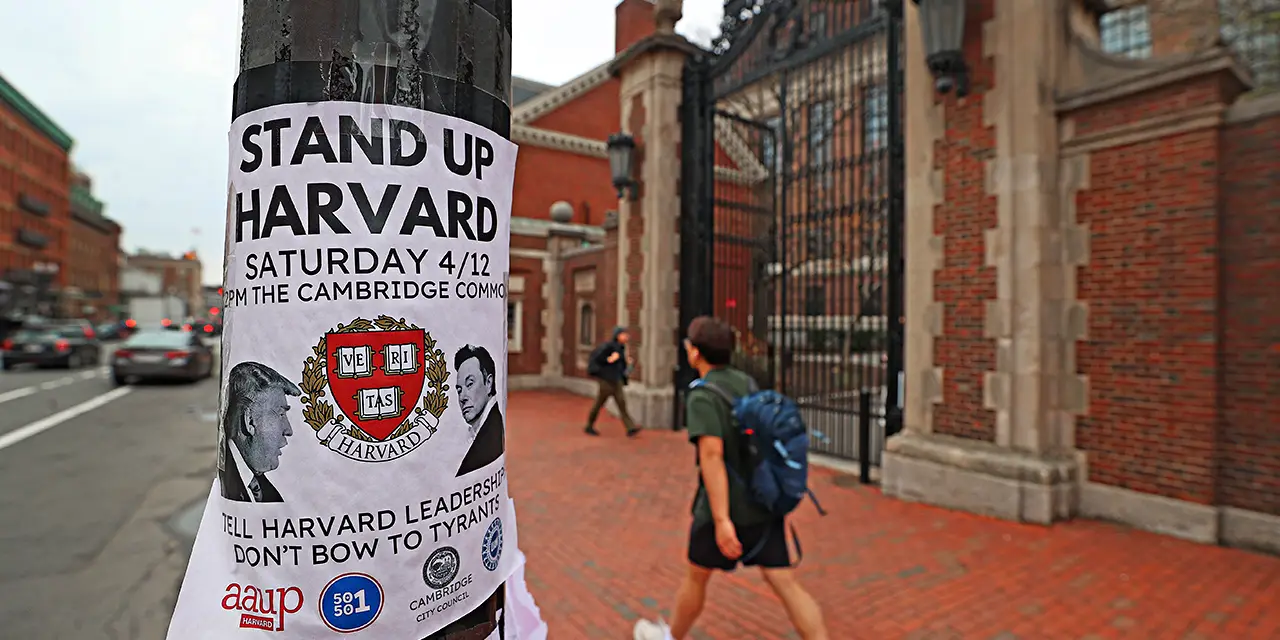It was a ruling spoken softly – yet its impact echoes loudly: On May 29, 2025, U.S. District Judge Allison D. Burroughs issued a preliminary injunction prohibiting the Trump administration from banning Harvard University from enrolling international students. The case is titled President and Fellows of Harvard College v. United States Department of Homeland Security, docket number 1:25-cv-11472, heard before the U.S. District Court in Massachusetts.
What may sound like dry legal procedure is, in truth, a symbolic moment – a spotlight on the ideological coldness with which the Trump administration is attempting to transform education policy into a policy of isolation.
An Attack on the Idea of the University
The origin of the case was the attempt by the Department of Homeland Security (DHS), under the leadership of Secretary Kristi Noem, to revoke Harvard’s SEVP certification – the official authorization required to enroll foreign students with F-1 or J-1 visas. The withdrawal of this certification would have effectively meant: no new international students. No exchange. No open lecture halls.
The university responded with a lawsuit – and an appeal to the Constitution. Harvard argued that the government’s move was an act of retaliation, a politically motivated intervention against an institution that had openly opposed Trump on numerous issues. The legal basis of the lawsuit is clear: violation of the First Amendment (freedom of speech), the Due Process Clause of the Constitution, and the Administrative Procedure Act.
The Court as a Bulwark Against Arbitrary Power
Judge Allison D. Burroughs, appointed in 2014 by President Barack Obama, has already distinguished herself in previous cases as a sharp-minded defender of academic integrity – including the widely noted case Students for Fair Admissions v. Harvard. Now begins a new chapter.
Mit ihrer Entscheidung am 29. Mai setzt sie ein klares Zeichen: Der Staat darf nicht ohne triftige, rechtlich fundierte Begründung in die Autonomie von Hochschulen eingreifen – und schon gar nicht in einer Weise, die einer politischen Erpressung gleichkommt. Burroughs erklärte, der Status quo müsse erhalten bleiben, um den Studierenden Sicherheit zu geben. Damit bleibt Harvard vorerst geschützt – und die Tür zur Welt offen.
International Students as Targets
The decision comes at a time when the Trump administration is increasingly confronting international educational institutions. Even before this, Secretary of State Marco Rubio had announced plans to revoke visas for Chinese students. At American universities, a climate of insecurity now prevails – fear, mistrust, and policies of suspicion intertwine.
This is not merely about isolated incidents, but about an ideological project: the university is to be stripped of its borders, controlled, nationalized. What was once a space of exchange is now being turned into a stage for exclusion and control. Trump’s culture war has long since reached education – and it is being fought bitterly.
A Ruling with Symbolic Power
More than 7,000 international students are currently enrolled at Harvard. They bring not only knowledge, but perspective, experience, diversity – all the things that make a university more than just a place for the transmission of facts. With Judge Burroughs’s decision, they retain, for now, a space of safety. But this ruling is more than just a legal waypoint.
It is a defense of the idea that education must not be thought of in national, but in global terms. That exchange is not a threat, but an enrichment. And that an open society must be measured by how it treats those who come to it to learn.
